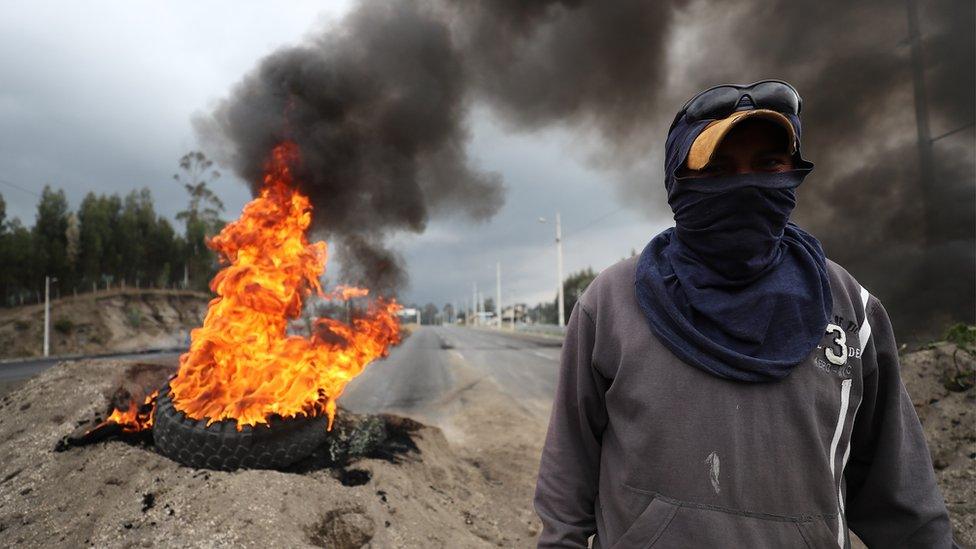Ecuador protests: UN calls on government to investigate deaths
- Published
Protesters in Quito chant: "Women united will never be defeated!"
Protesters in Ecuador have released 10 police officers who were taken hostage amid violent demonstrations triggered by austerity measures.
Indigenous demonstrators paraded the officers, including one woman, on a stage in Quito before a crowd.
Before being freed, some of the officers were forced to carry the coffin of an indigenous activist allegedly killed during the unrest.
President Lenín Moreno was forced to move the government out of the capital.
The protesters, led by indigenous groups, are demanding the return of fuel subsidies, scrapped by the government last week. Some have called for the resignation of the president, who has declared a two-month national emergency.
On Thursday, the officers were detained at a cultural centre in Quito that has been used by thousands of indigenous protesters as their base since they arrived in the city last weekend.
Hours later in an evening address, Interior Minister María Paula Romo said they had been released along with some 30 journalists who were covering the incident and who had also been prevented from leaving the building.
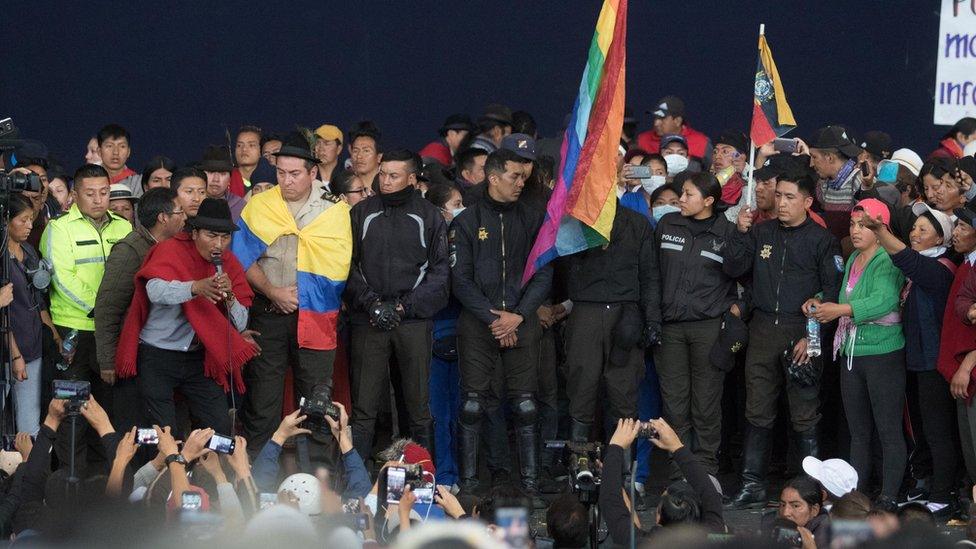
The captive police officers were paraded in front of a crowd of thousands in Quito
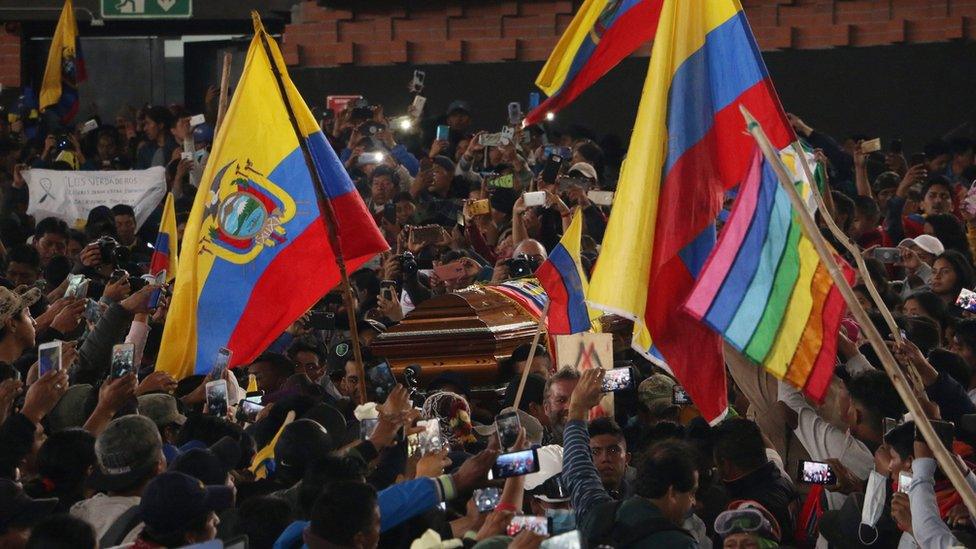
The coffin of Inocencio Tucumbí was taken to the centre where protesters have gathered
Indigenous leaders - who have complained of excessive police force - say Inocencio Tucumbí, whose coffin was taken to the centre, died after being hit by a tear gas canister fired by the police at a protest on Wednesday.
But Ms Romo said Tucumbí died from a fall, without giving further details. Three other people have died as a result of the unrest so far, she said, adding that some 650 people have been detained by police.
President Moreno has said he will not quit and, without offering evidence, has accused his predecessor Rafael Correa and Venezuelan President Nicolás Maduro of plotting to oust him.
The United Nations said it was ready to mediate after receiving a request from the government.

Uncompromising rhetoric
By Will Grant, BBC Latin America correspondent
The police officers held by the protesters were forced on to a stage and made to remove their helmets, bullet-proof vests and boots.
The officers look visibly worried as they were paraded in front of an angry crowd in which many were incensed at several days of a heavy-handed police response to the demonstrations.
President Moreno has been pushing for further talks with the indigenous leaders but the rhetoric coming from the groups that took the police officers is uncompromising.
With some pushing for nothing less than the president's resignation, it seems there will be more protests to come over the weekend: "We're going to radicalise with more force," an indigenous leader, Jaime Vargas, told the crowd.

What's the background?
Protests began after the government announced an end to fuel subsidies as part of public spending cuts agreed with the International Monetary Fund (IMF) in return for a loan. The deal reached in March will allow Ecuador to borrow $4.2bn (£3.4bn).
Mr Moreno has said the fuel subsidies, introduced in the 1970s with an annual cost of $1.3bn, were no longer affordable. Eliminating them is part of his plan to shore up Ecuador's flagging economy and ease its debt burden.
Fires and clashes as Quito descends into chaos
Petrol prices soared and thousands took to the streets. In recent days, they set up barricades, stormed buildings and clashed with security forces, who have tried to disperse the crowds with tear gas.
Protesters have also entered some oil fields, impacting production of the Andean nation, a member of the Organization of the Petroleum Exporting Countries.
Indigenous-led protests toppled three presidents in the past few decades. Since the current unrest began, protesters have taken dozens of officers hostage in various locations throughout the country .
- Published9 October 2019
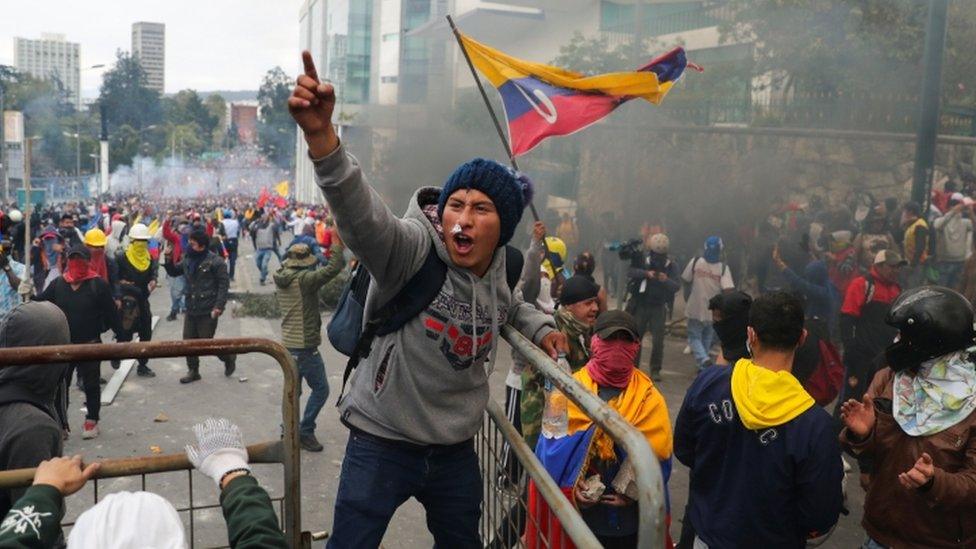
- Published8 October 2019
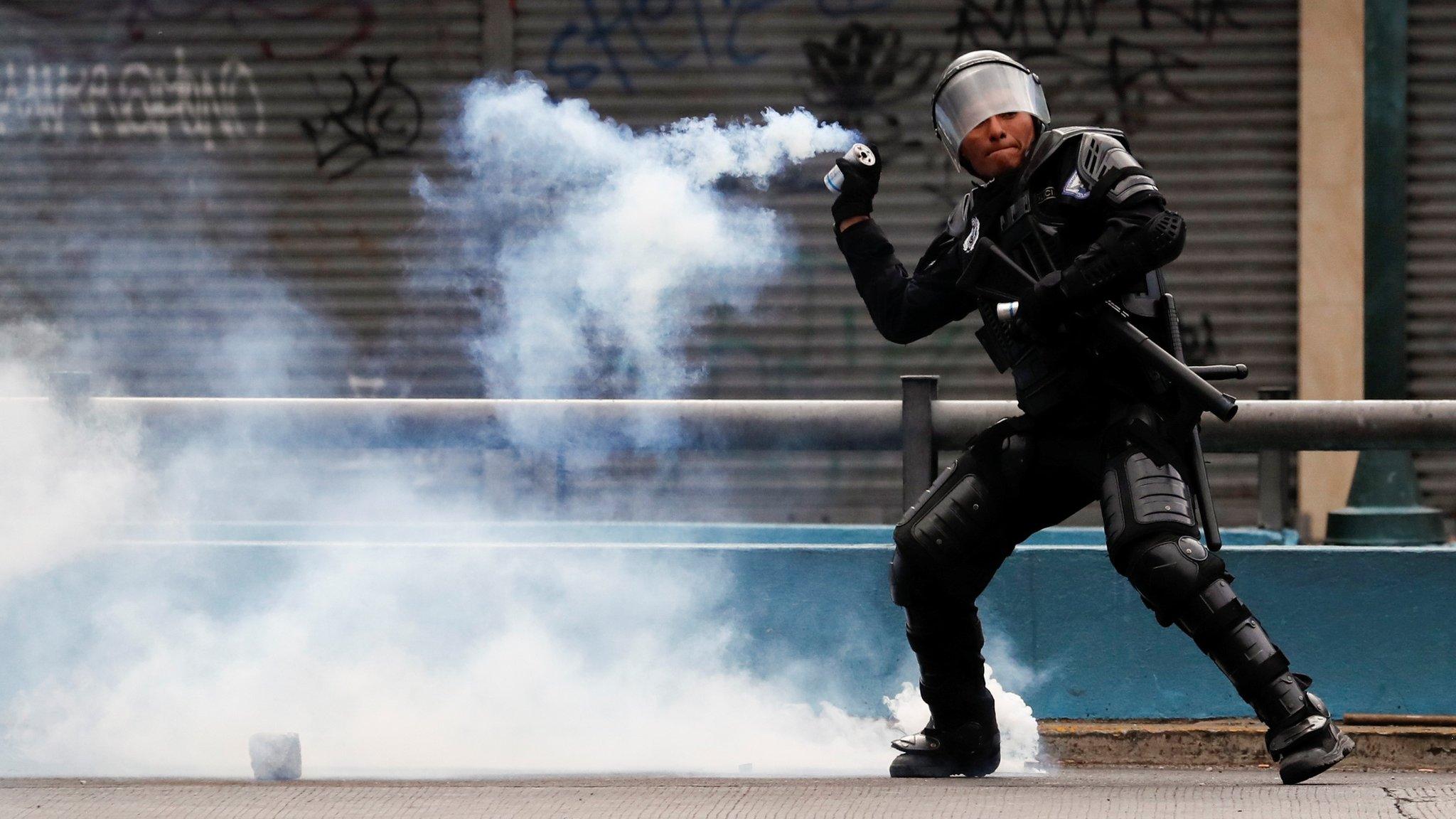
- Published7 October 2019
